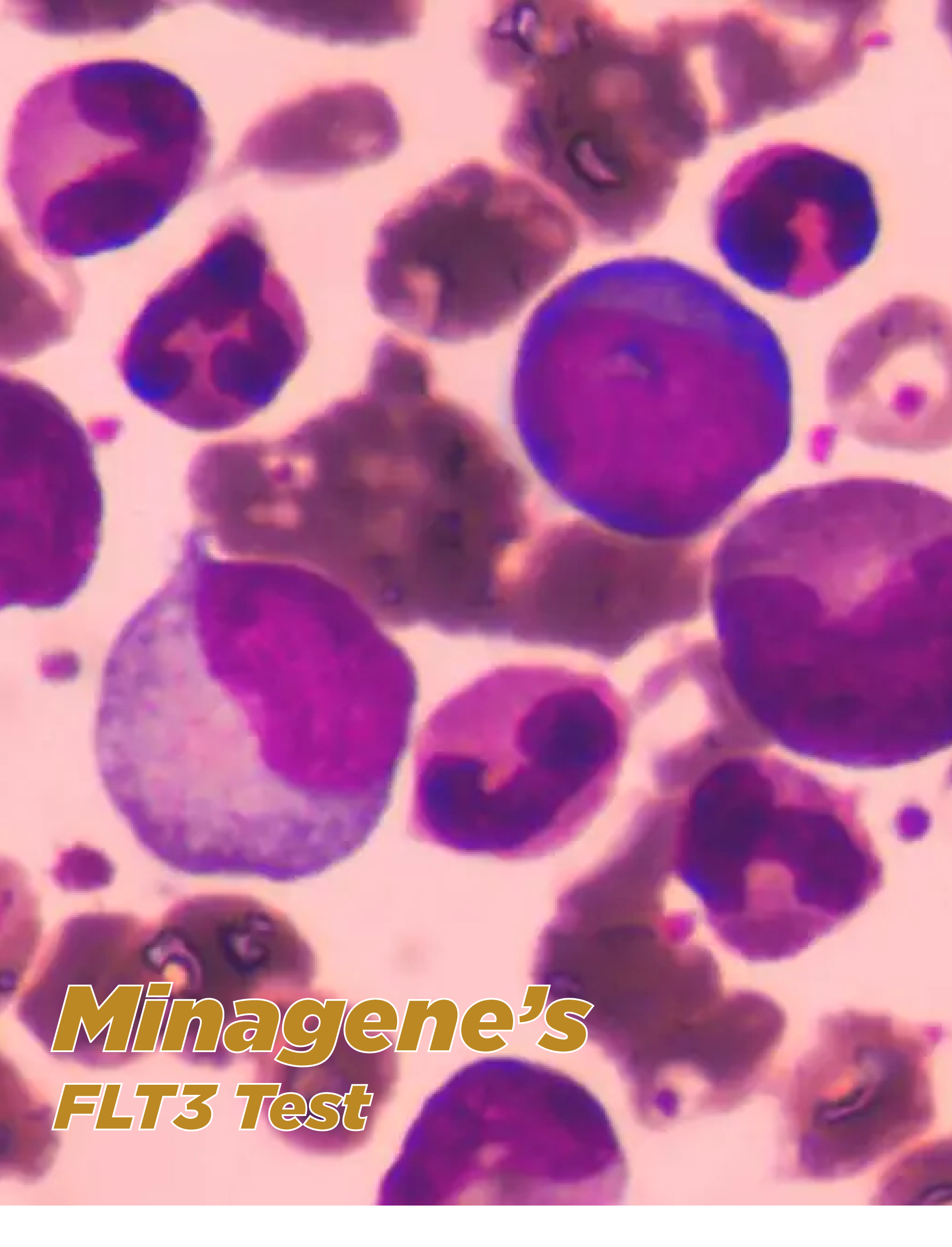
Overview
Minagene’s FLT3 Test is a specialized genetic test designed to provide comprehensive analysis of FLT3 mutations in patients with acute myeloid leukemia (AML). This advanced test utilizes state-of-the-art molecular techniques to detect and characterize FLT3 mutations, enabling accurate diagnosis, prognostic assessment, and personalized treatment strategies for individuals with AML.
Methodology
The FLT3 Test employs cutting-edge molecular techniques, including polymerase chain reaction (PCR) and DNA sequencing, to detect and analyze FLT3 mutations. It specifically targets the FLT3 gene, which plays a critical role in the regulation of cell growth and proliferation in hematopoietic cells. By analyzing FLT3 mutations, the test provides valuable genetic information that aids in the diagnosis, risk stratification, and treatment selection for AML patients.
Key Highlights of the Test:
-Comprehensive FLT3 Mutation Analysis: Minagene’s FLT3 Test offers a comprehensive analysis of FLT3 mutations in AML patients. It detects both internal tandem duplications (ITDs) and point mutations in the FLT3 gene, including the common FLT3-ITD and FLT3-TKD mutations. This comprehensive approach ensures accurate detection and characterization of FLT3 mutations, which are crucial for clinical decision-making.
-Accurate Diagnosis and Subtyping: The FLT3 Test helps in accurate diagnosis and subtyping of AML by identifying FLT3 mutations. FLT3 mutations are commonly observed in AML and have prognostic implications. The test aids in distinguishing between different AML subtypes and provides critical information for risk stratification and treatment planning.
-Prognostic Assessment: FLT3 mutations have significant prognostic implications in AML. The FLT3 Test provides valuable prognostic information by identifying the presence and type of FLT3 mutations. It helps in risk stratification and treatment decision-making, as patients with FLT3 mutations often have poorer outcomes and may require more aggressive therapeutic approaches.
-Personalized Treatment Selection: The FLT3 Test’s genetic insights assist in personalized treatment selection for AML patients. Identification of FLT3 mutations helps in determining the eligibility for targeted therapies, such as FLT3 inhibitors, which specifically target the mutated FLT3 protein. This information guides clinicians in selecting appropriate treatment strategies to improve patient outcomes.
-Monitoring Treatment Response: The FLT3 Test can be used to monitor treatment response in AML patients with FLT3 mutations. By periodically assessing the presence and levels of FLT3 mutations, the test helps evaluate the effectiveness of targeted therapies and make necessary treatment adjustments based on the molecular response.
-Diagnostic Evaluation: The FLT3 Test is recommended for patients with suspected or newly diagnosed AML. It aids in accurate diagnosis and subclassification of AML by detecting FLT3 mutations, providing valuable information for risk assessment and treatment planning.
-Prognostic Assessment: The test is valuable for prognostic assessment in AML patients. FLT3 mutations are associated with poorer outcomes, and their detection helps in risk stratification and treatment decision-making.
-Treatment Selection: The FLT3 Test assists in personalized treatment selection for AML patients. Identification of FLT3 mutations determines the eligibility for targeted therapies, such as FLT3 inhibitors, which can be used as part of the treatment regimen.
-Treatment Response Monitoring: The test can be utilized for monitoring treatment response in AML patients with FLT3 mutations. It helps evaluate the effectiveness of targeted therapies and guides treatment adjustments based on the molecular response.
-Research and Clinical Trials: The FLT3 Test can be used in research studies and clinical trials focusing on AML. The test’s comprehensive analysis of FLT3 mutations contributes to a better understanding of AML biology and helps identify potential therapeutic targets.
